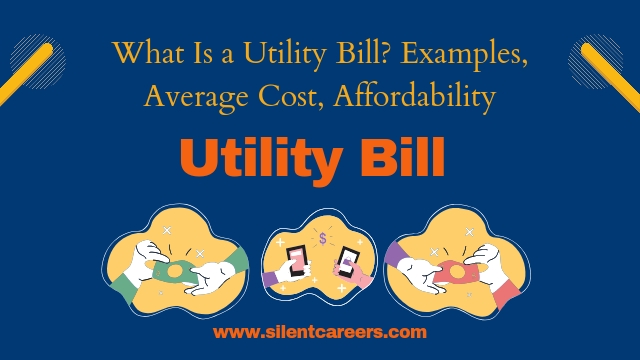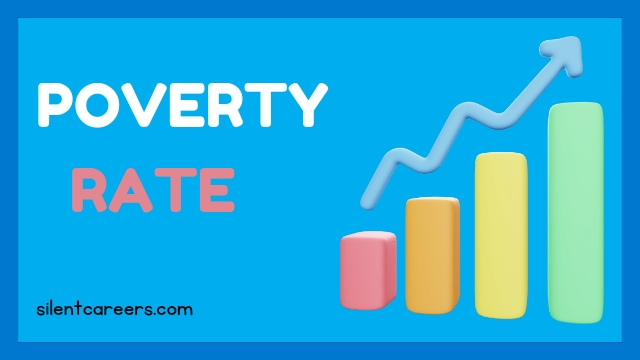
A good credit score for a car loan typically starts at 700 or higher. Higher scores can lead to better loan terms, including lower interest rates. However, loans may still be available for lower scores, though rates and terms may be less favorable.

What minimum credit score is needed to buy a car?
The minimum credit score needed to buy a car varies by lender and loan type. Generally:
- Fair Credit (580-669): May qualify for car loans, but rates and terms could be less favorable.
- Good Credit (670-739): Typically receives better loan terms and lower interest rates.
- Excellent Credit (740+): Often secures the best rates and loan terms.
Some lenders might approve loans with lower scores, but higher scores generally lead to better financing options.
What Credit Scores Do Auto Lenders Use?
Auto lenders typically use specialized credit scores when evaluating loan applications. The most common credit scores used are:
1. FICO Auto Score
- Specific Use: Designed specifically for auto lending, reflecting how you manage automotive credit.
- Scoring Range: Typically ranges from 250 to 900. Higher scores indicate better creditworthiness.
2. VantageScore
- Scoring Models: VantageScore 3.0 and 4.0 are commonly used.
- Scoring Range: Ranges from 300 to 850, similar to the FICO score.
3. Experian, Equifax, and TransUnion Scores
- Credit Bureau Scores: Each credit bureau may provide its own version of a credit score, often used in conjunction with FICO or VantageScore.
4. Industry-Specific Scores
- Additional Models: Lenders might use other industry-specific scoring models tailored to automotive lending.
Auto lenders often use FICO Auto Scores, VantageScore models, or credit scores from major bureaus (Experian, Equifax, TransUnion) to assess creditworthiness. Each scoring model may have different ranges and factors influencing the score.
What Credit Score Do I Need for an Auto Loan?
The credit score you need for an auto loan can vary depending on the lender and the terms of the loan. Here’s a general guide:
1. Excellent Credit (740 and Above)
- Loan Terms: Typically qualifies for the best interest rates and loan terms.
- Typical Rates: Often receives the lowest rates available.
2. Good Credit (670 to 739)
- Loan Terms: Usually qualifies for favorable rates and terms, though not as competitive as those offered to excellent credit borrowers.
- Typical Rates: Generally receives lower rates than average.
3. Fair Credit (580 to 669)
- Loan Terms: May still qualify for a loan but with higher interest rates and less favorable terms.
- Typical Rates: Rates are higher, and loan amounts or terms might be limited.
4. Poor Credit (Below 580)
- Loan Terms: Securing a loan may be more difficult and rates will be higher. Some lenders might require a co-signer or a larger down payment.
- Typical Rates: Significantly higher rates, with more stringent terms.
5. Subprime Lending
- Options: Lenders specializing in subprime loans may offer loans to those with very low credit scores but often at much higher interest rates.
For the best auto loan terms, aim for a credit score of 740 or higher. Scores between 670 and 739 are considered good, while scores below 670 may result in higher interest rates and less favorable loan conditions.
How credit scores affect auto loans
Credit scores significantly impact the terms and conditions of auto loans. Here’s how they affect various aspects of your loan:
1. Interest Rates
- Higher Scores: Borrowers with higher credit scores (740+) typically qualify for lower interest rates, reducing the overall cost of the loan.
- Lower Scores: Those with lower scores (below 670) generally face higher interest rates, increasing the total repayment amount.
2. Loan Approval
- Higher Scores: Higher credit scores make it easier to get approved for an auto loan, as lenders view you as a lower risk.
- Lower Scores: Lower credit scores may lead to more stringent approval requirements or higher chances of being denied.
3. Loan Terms
- Higher Scores: With good credit, you may be offered longer loan terms or higher loan amounts with more favorable conditions.
- Lower Scores: Lower credit might limit the loan amount or lead to shorter terms and less favorable conditions.
4. Down Payment Requirements
- Higher Scores: A higher credit score may reduce the required down payment or eliminate the need for one altogether.
- Lower Scores: A lower credit score may result in a higher down payment requirement to mitigate the lender’s risk.
5. Monthly Payments
- Higher Scores: Lower interest rates due to higher credit scores often lead to lower monthly payments.
- Lower Scores: Higher interest rates usually mean higher monthly payments.
6. Loan Terms and Conditions
- Higher Scores: Better credit may give you access to more flexible loan terms, including the possibility of refinancing at a better rate in the future.
- Lower Scores: Poor credit might result in less flexible terms and fewer options for refinancing.
7. Additional Fees
- Higher Scores: Higher credit scores often result in fewer additional fees or charges.
- Lower Scores: Lenders may impose extra fees or require additional insurance for borrowers with lower credit scores.
Credit scores influence interest rates, loan approval chances, loan terms, down payment requirements, monthly payments, and overall loan conditions. Higher credit scores generally lead to more favorable loan terms, while lower scores can result in higher costs and less favorable conditions.
Can You Get an Auto Loan With Bad Credit?
Yes, you can get an auto loan with bad credit, but it may come with some challenges. Here’s what to expect and how to improve your chances:
**1. *Higher Interest Rates*
- Cost: Loans for those with bad credit often come with significantly higher interest rates, increasing the total cost of the loan.
**2. *Stricter Terms*
- Loan Terms: You might face shorter loan terms or lower loan amounts compared to borrowers with better credit.
- Down Payment: A larger down payment may be required to offset the lender’s risk.
**3. *Limited Lender Options*
- Lender Choices: You may need to seek lenders that specialize in bad credit auto loans or subprime lending.
- Dealership Financing: Some dealerships offer financing for those with bad credit, though terms may be less favorable.
**4. *Higher Monthly Payments*
- Affordability: Due to higher interest rates, your monthly payments will likely be higher.
**5. *Potential for Co-Signers*
- Co-Signers: Having a co-signer with good credit can improve your chances of getting approved and might help secure better terms.
**6. *Credit Repair Strategies*
- Improve Credit: Work on improving your credit score before applying. Pay down existing debts, correct any errors on your credit report, and make timely payments.
**7. *Loan Pre-Approval*
- Pre-Approval: Consider getting pre-approved for a loan to understand what you can afford and to negotiate better terms.
**8. *Shop Around*
- Compare Offers: Compare offers from multiple lenders to find the best possible terms and rates for your situation.
**9. *Consider Alternative Options*
- Alternative Financing: Explore alternative financing options, such as credit unions or online lenders, which may offer more flexible terms.
You can obtain an auto loan with bad credit, but expect higher interest rates, stricter terms, and possibly a larger down payment. Improving your credit score, seeking pre-approval, and shopping around for the best offer can help mitigate some of these challenges.
How to Apply for an Auto Loan
Here’s a step-by-step guide on how to apply for an auto loan:
1. Check Your Credit Score
- Review Score: Obtain your credit score from a credit bureau to understand where you stand.
- Improve Score: Address any issues or improve your score if possible before applying.
2. Determine Your Budget
- Monthly Payments: Calculate how much you can afford to pay each month.
- Total Loan Amount: Decide on the total amount you need based on the vehicle’s price and your down payment.
3. Gather Required Documents
- Personal Identification: Driver’s license or government ID.
- Income Verification: Pay stubs, tax returns, or bank statements.
- Proof of Residence: Utility bills or lease agreements.
- Employment Information: Employer contact details and employment history.
4. Research Lenders
- Compare Offers: Look at banks, credit unions, and online lenders to find the best rates and terms.
- Pre-Approval: Consider getting pre-approved to know your budget and strengthen your bargaining position.
5. Apply for the Loan
- Complete Application: Fill out the loan application form provided by the lender, either online or in person.
- Submit Documents: Provide the required documentation to support your application.
6. Review Loan Terms
- Interest Rate: Check the interest rate, loan term, and any fees associated with the loan.
- Monthly Payment: Ensure the payment fits within your budget.
7. Finalize the Loan
- Approval: Once approved, review the final loan agreement carefully.
- Sign Documents: Sign the loan agreement and any other required paperwork.
8. Purchase the Vehicle
- Dealership Coordination: Work with the dealership to finalize the purchase using the loan funds.
- Down Payment: Provide your down payment if required.
9. Make Payments
- Set Up Payments: Establish a payment schedule and make payments on time to build credit and avoid penalties.
To apply for an auto loan, check your credit score, determine your budget, gather necessary documents, research and compare lenders, complete the application, review and finalize the loan terms, and make timely payments.
Build Credit for Lower Rates
Building credit for lower rates involves improving your credit score to qualify for better loan terms and interest rates. Here are steps to achieve this:
1. Check Your Credit Report
- Obtain Reports: Get your credit reports from Equifax, Experian, and TransUnion.
- Review for Errors: Look for inaccuracies and dispute any errors.
2. Pay Your Bills on Time
- Timely Payments: Ensure all bills, including credit cards, loans, and utilities, are paid on time.
- Set Reminders: Use reminders or automatic payments to avoid missed due dates.
3. Reduce Your Credit Utilization
- Credit Card Balance: Keep your credit card balances low relative to your credit limits.
- Pay Down Debt: Aim to reduce outstanding credit card debt.
4. Build a Positive Credit History
- Open Accounts: Consider opening a credit card or loan if you don’t have existing credit accounts.
- Use Responsibly: Use credit responsibly and make regular payments.
5. Avoid New Hard Inquiries
- Limit Applications: Avoid applying for new credit accounts frequently, as each application can impact your score.
6. Increase Your Credit Limits
- Request Limits: Ask for higher credit limits on your existing accounts to improve your credit utilization ratio.
7. Keep Old Accounts Open
- Credit History: Maintain older credit accounts to lengthen your credit history, which can positively impact your score.
8. Monitor Your Credit Regularly
- Track Progress: Regularly check your credit score and report to track improvements and address any issues.
9. Diversify Your Credit Mix
- Variety of Accounts: Having a mix of credit types, such as credit cards, installment loans, and revolving credit, can benefit your score.
10. Seek Professional Help
- Credit Counseling: If needed, consult with a credit counselor or financial advisor for personalized advice.
To build credit for lower rates, regularly check your credit report, pay bills on time, reduce credit utilization, build a positive credit history, avoid new hard inquiries, increase credit limits, keep old accounts open, monitor credit regularly, diversify your credit mix, and seek professional help if necessary.
What is a FICO Auto Score?
A FICO Auto Score is a credit score specifically designed to predict a borrower’s risk in the automotive lending market. Here’s what you need to know:
**1. *Purpose*
- Auto Lending: It helps lenders assess the likelihood that a borrower will default on an auto loan.
**2. *Scoring Range*
- Typical Range: Generally ranges from 250 to 900. Higher scores indicate lower risk for lenders.
**3. *How It’s Calculated*
- Credit Data: Based on information from your credit report, including payment history, amounts owed, length of credit history, types of credit used, and new credit.
- Auto-Specific Factors: May place more emphasis on your history with auto loans and other types of installment credit.
**4. *Differences from Other Scores*
- Industry-Specific: Unlike general FICO scores, the Auto Score is tailored specifically for evaluating automotive credit risk.
- Scoring Models: There are several versions of FICO Auto Scores, which may vary slightly in calculation methods.
**5. *Impact on Auto Loans*
- Loan Terms: A higher FICO Auto Score can lead to better loan terms, including lower interest rates and more favorable conditions.
- Approval: Helps determine your eligibility for an auto loan and the terms you’ll be offered.
**6. *Accessing Your Score*
- Lender: Your FICO Auto Score is typically accessed by lenders during the loan application process.
- Not Always Available: You might not see your FICO Auto Score unless you request it directly from a lender or credit reporting service.
A FICO Auto Score is a credit score used by lenders to assess the risk of lending for auto loans. It ranges from 250 to 900, with higher scores indicating lower risk. It focuses on your credit history related to automotive loans and impacts loan terms and approval.
Read more: How to Build Credit: Tips and Tricks for a Better Credit Score
Other factors can help you buy a car with bad credit
When buying a car with bad credit, several factors can improve your chances of approval and potentially secure better terms:
**1. *Save for a Larger Down Payment*
- Increased Equity: A larger down payment reduces the loan amount and shows lenders your commitment, potentially improving your chances of approval.
**2. *Consider a Co-Signer*
- Better Terms: A co-signer with good credit can help you secure a loan and may result in better interest rates and terms.
**3. *Explore Subprime Lenders*
- Specialized Lenders: Subprime lenders specialize in offering loans to individuals with poor credit, though they may come with higher rates.
**4. *Improve Your Credit Score*
- Credit Repair: Addressing any inaccuracies and paying down existing debt can improve your credit score over time, potentially leading to better loan offers.
**5. *Shop Around for Lenders*
- Compare Offers: Different lenders have varying criteria and loan offers. Compare multiple lenders to find the best terms available to you.
**6. *Consider a Used Car*
- Lower Cost: Opting for a less expensive used car can reduce the loan amount and increase your chances of approval.
**7. *Get Pre-Approved*
- Pre-Approval: Securing pre-approval gives you a clearer idea of what you can afford and strengthens your negotiating position.
**8. *Negotiate the Price*
- Price Flexibility: Negotiating the purchase price of the car can lower the loan amount needed and improve your chances of approval.
**9. *Demonstrate Stable Income*
- Proof of Income: Providing evidence of stable and sufficient income reassures lenders of your ability to repay the loan.
**10. *Build a Positive Relationship with the Lender*
- Lender Relationship: Building a positive relationship with lenders through communication and showing financial responsibility can aid in obtaining financing.
To buy a car with bad credit, consider saving for a larger down payment, involving a co-signer, exploring subprime lenders, improving your credit score, comparing lender offers, choosing a used car, getting pre-approved, negotiating the price, demonstrating stable income, and building a good relationship with lenders.
How to build your credit before car shopping
Building your credit before shopping for a car can help you secure better financing terms and lower interest rates. Here’s a step-by-step guide to improving your credit:
1. Check Your Credit Report
- Obtain Reports: Get your credit reports from the three major credit bureaus—Equifax, Experian, and TransUnion.
- Review for Errors: Identify and dispute any inaccuracies or errors on your reports.
2. Pay Bills on Time
- Timely Payments: Ensure all your bills, including credit cards, loans, and utilities, are paid on time.
- Set Reminders: Use calendar reminders or automatic payments to avoid missed due dates.
3. Reduce Credit Card Balances
- Lower Utilization: Aim to keep your credit card balances below 30% of your credit limits.
- Pay Down Debt: Focus on paying off existing credit card debt.
4. Increase Your Credit Limits
- Request Increases: Ask for higher credit limits on your existing credit cards, but avoid increasing your spending.
5. Build a Positive Credit History
- Open Accounts: If you don’t have credit accounts, consider opening a secured credit card or a small installment loan.
- Use Responsibly: Make regular payments on these accounts to build a positive credit history.
6. Keep Old Accounts Open
- Credit History: Maintain older credit accounts to lengthen your credit history, which can positively impact your credit score.
7. Avoid New Hard Inquiries
- Limit Applications: Avoid applying for new credit accounts frequently, as each application can temporarily impact your credit score.
8. Diversify Your Credit Mix
- Variety of Accounts: Having a mix of credit types, such as revolving credit and installment loans, can benefit your credit score.
9. Monitor Your Credit Regularly
- Track Progress: Regularly check your credit score and report to track improvements and address any issues promptly.
10. Seek Professional Advice
- Credit Counseling: If needed, consult with a credit counselor or financial advisor for personalized advice on improving your credit.
To build your credit before car shopping, check your credit report for errors, pay bills on time, reduce credit card balances, increase credit limits, build a positive credit history, keep old accounts open, avoid new hard inquiries, diversify your credit mix, monitor your credit regularly, and seek professional advice if necessary.
How your car loan can help you build better credit
A car loan can help you build better credit if managed responsibly. Here’s how:
**1. *Positive Payment History*
- Timely Payments: Making consistent, on-time payments demonstrates your reliability to creditors and positively impacts your credit score.
- Credit History: A history of timely payments adds to your overall credit history, which is beneficial for your score.
**2. *Credit Mix Improvement*
- Diverse Accounts: Having a variety of credit types, such as installment loans (like car loans) and revolving credit (like credit cards), can improve your credit score.
- Credit Mix: A diverse credit mix shows lenders that you can manage different types of credit responsibly.
**3. *Lower Credit Utilization*
- Reduced Debt-to-Credit Ratio: By paying off high-interest credit cards and using an auto loan, you reduce your overall credit utilization ratio, which can positively affect your score.
**4. *Building Credit History*
- Length of History: A car loan contributes to the length of your credit history. Longer credit histories are generally viewed more favorably by lenders.
- Account Age: Keeping the loan in good standing over time helps to establish and strengthen your credit profile.
**5. *Credit Score Monitoring*
- Regular Updates: Auto loans provide regular updates to your credit report, which can help track improvements in your credit score.
**6. *Potential for Refinancing*
- Better Terms: As your credit improves, you might be eligible to refinance your car loan at a lower interest rate, further benefiting your financial situation.
**7. *Demonstrates Financial Responsibility*
- Lender Confidence: Successfully managing a car loan shows lenders that you are capable of handling credit responsibly, potentially making it easier to obtain future credit.
Tips for Maximizing Benefits
- Pay On Time: Always make payments on time to avoid negative marks on your credit report.
- Avoid Missed Payments: Set up automatic payments or reminders to ensure you never miss a due date.
- Monitor Your Credit: Regularly check your credit report to track the impact of your auto loan and catch any potential issues early.
A car loan can enhance your credit by improving your payment history, diversifying your credit mix, reducing your credit utilization, building your credit history, and demonstrating financial responsibility. Manage the loan responsibly to reap these benefits and strengthen your overall credit profile.
What If I Have No Credit? Can I Buy a Car?
Yes, you can buy a car even if you have no credit, but it may come with some challenges. Here’s how to navigate the process:
**1. *Consider a Larger Down Payment*
- Increased Equity: A larger down payment reduces the loan amount and demonstrates your commitment, which can improve your chances of approval.
**2. *Explore Different Lenders*
- Dealership Financing: Some dealerships offer financing options for buyers with no credit, though terms may be less favorable.
- Credit Unions and Banks: Explore credit unions and banks that might offer loans to first-time buyers or those with no credit history.
**3. *Apply for a Secured Credit Card*
- Build Credit: Consider applying for a secured credit card to start building a credit history. Use it responsibly and make timely payments.
**4. *Consider a Co-Signer*
- Better Terms: A co-signer with established credit can help you secure a loan and potentially get better terms.
**5. *Get Pre-Approved*
- Pre-Approval: Seek pre-approval from lenders to understand your budget and strengthen your negotiating position.
**6. *Negotiate the Purchase Price*
- Price Flexibility: Negotiating the price of the car can reduce the loan amount needed and improve your chances of getting approved.
**7. *Provide Proof of Income*
- Income Verification: Demonstrating a stable and sufficient income can reassure lenders of your ability to make payments.
**8. *Consider a Used Car*
- Lower Cost: Opting for a less expensive used car can make it easier to secure financing with no credit history.
**9. *Build a Positive Relationship with Lenders*
- Lender Relationship: Establishing a good relationship with lenders and showing financial responsibility can aid in obtaining financing.
**10. *Explore Alternative Financing*
- Alternative Options: Look into other financing options such as peer-to-peer lending platforms or specialized auto loan lenders.
You can buy a car with no credit by considering a larger down payment, exploring different lenders, applying for a secured credit card, seeking a co-signer, getting pre-approved, negotiating the purchase price, providing proof of income, considering a used car, building a positive relationship with lenders, and exploring alternative financing options.
Do Lenders Change Interests Rates Based on the Car?
Yes, lenders can adjust interest rates based on the type of car you are purchasing. Here’s how different factors related to the car can impact your interest rate:
**1. *New vs. Used Cars*
- New Cars: Generally, lenders offer lower interest rates for new cars because they are seen as less risky. New cars often have higher resale values and warranties.
- Used Cars: Interest rates for used cars may be higher due to increased risk. The vehicle’s age, mileage, and condition can impact the rate.
**2. *Car Model and Make*
- High Demand: Popular or luxury car models may come with different rates. Some lenders may offer promotional rates for specific makes or models.
- Resale Value: Cars with higher resale values might qualify for better rates, as they are seen as a lower risk.
**3. *Loan Term Length*
- Shorter Terms: Loans with shorter terms (e.g., 36 or 48 months) often have lower interest rates compared to longer terms.
- Longer Terms: Loans with longer terms (e.g., 60 or 72 months) may come with higher rates, as they carry more risk for lenders.
**4. *Down Payment Amount*
- Larger Down Payment: A substantial down payment can reduce the loan amount and may help in securing a lower interest rate.
- Smaller Down Payment: A smaller down payment may result in a higher interest rate to offset the lender’s risk.
**5. *Car’s Age and Condition*
- Newer Cars: Newer cars usually attract lower interest rates due to their lower risk profile.
- Older Cars: Older vehicles may have higher rates because they are perceived as higher risk due to potential maintenance issues.
**6. *Loan-to-Value Ratio (LTV)*
- Lower LTV: If your loan amount is lower compared to the car’s value (higher down payment), you may receive a better interest rate.
- Higher LTV: A higher loan amount relative to the car’s value may lead to a higher interest rate.
**7. *Promotional Rates*
- Dealer Promotions: Dealerships may offer special financing rates for certain models or during promotional periods. These rates can be lower than standard rates.
Lenders can change interest rates based on the car’s type, model, age, condition, and other factors. New cars generally have lower rates compared to used cars, and rates may vary based on the car’s make, loan term length, down payment amount, and promotional offers.
Will Using a Cosigner Improve My Loan?
Yes, using a co-signer can improve your loan terms and increase your chances of approval, especially if you have limited or poor credit history. Here’s how a co-signer can benefit your loan application:
1. Increases Approval Chances
- Higher Approval Rate: A co-signer with good credit can help you qualify for a loan that you might not otherwise be able to obtain on your own.
2. Improves Loan Terms
- Lower Interest Rates: Lenders may offer better interest rates because the co-signer’s good credit reduces their risk.
- Better Terms: You might receive more favorable loan terms, such as a lower down payment or longer repayment period.
3. Builds Your Credit History
- Positive Reporting: If you make timely payments, it helps build your credit history and improve your credit score. However, missed payments can negatively impact both your credit and your co-signer’s credit.
4. Increases Borrowing Power
- Higher Loan Amount: With a co-signer, you may be able to borrow a larger amount or afford a more expensive vehicle due to the improved creditworthiness.
5. Strengthens Application
- Financial Stability: A co-signer’s financial stability and credit history provide additional assurance to lenders that the loan will be repaid.
Considerations When Using a Co-Signer
- Shared Responsibility: Both you and the co-signer are legally responsible for repaying the loan. Late payments or defaults will affect both parties’ credit scores.
- Co-Signer’s Credit: The co-signer’s credit score and financial situation should be considered, as it affects the loan terms.
- Communication: Ensure clear communication with your co-signer about financial responsibilities and potential risks.
Summary
Using a co-signer can significantly improve your loan application by increasing approval chances, securing better loan terms, and potentially lowering interest rates. It can also help build your credit history. However, both you and the co-signer are responsible for the loan, so maintaining timely payments is crucial for both parties’ credit health.








